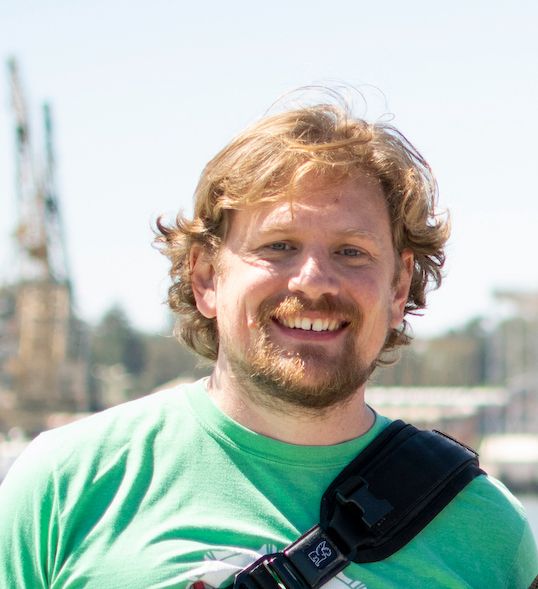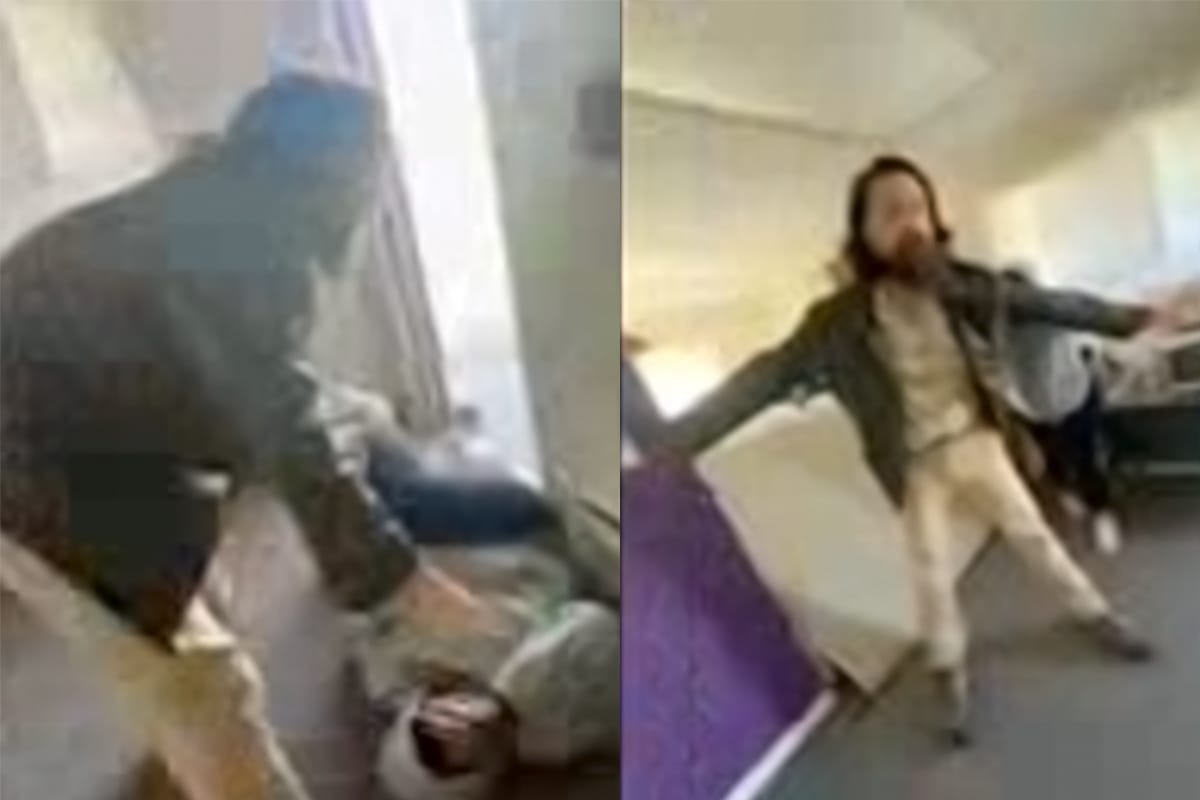VALLEJO – An arbitrator found that Vallejo police Detective Jarrett Tonn used reasonable force when he shot and killed 22-year-old Sean Monterrosa through the windshield of an unmarked pickup truck during widespread protests in 2020 because two other officers with Tonn perceived a deadly threat, according to the decision, which was released by the city on Thursday.
Tonn’s attorney had previously confirmed that the arbitrator ordered Tonn’s reinstatement, but the 70-page opinion provides new information about arbitrator Alexander Cohn’s reasoning in reaching his decision. Under the city’s contract with the Vallejo Police Officers Association, the arbitrator’s decision is binding.
Most of Cohn’s reasoning relies on the testimony of the driver of the pickup, Officer Bretton Wagoner, and the officer in the passenger seat, Wesley Pittman, who both said that they saw Monterrosa “spin around” toward the truck as it entered a Walgreens parking lot on June 2, 2020, despite that Monterrosa was unarmed and shot in the back of the head.
“Simply put, it is more likely the shots through the front window – which were reasonable under the circumstances – caused Monterrosa to turn his head,” Cohn wrote in his report. “All three reasonably believed Monterrosa was either drawing or pointing a weapon and getting ready to shoot.”
Cohn also found that the department itself violated policy by not conducting its own internal affairs investigation and instead hiring an outside consultant, the OIR Group, to conduct the investigation. Cohn agreed with a prior review that the department waited too long to act.
The arbitrator did find that Tonn had committed one policy violation, for not turning on his body-worn camera prior to the shooting, and recommended he receive a letter of reprimand, as Pittman did. Despite winning his job back, Tonn could still face criminal charges for the shooting, as the state Department of Justice has been reviewing the case for over two years.
In a statement shortly after the arbitrator’s Aug. 18 ruling, City Manager Mike Malone said that the city was “making preparations” for Tonn to return to work, but did not specify exactly when he would resume his duties with the department. A police spokesperson did not immediately return a request for comment.
Monterrosa’s death happened amid protests over the police murder of George Floyd in Minneapolis. Throughout the Bay Area, roving caravans of burglars targeted businesses during that time, including in Vallejo and Solano County. Tonn, Pittman and Wagoner were SWAT officers who were called in to patrol the streets during the unrest.
Just before they entered the Walgreens parking lot, the three stopped to speak to Capt. Lee Horton, one of the highest ranking officers in the department, who told them to enter the parking lot while there were burglars inside the Walgreens.
The OIR Group’s investigation later faulted Horton for not coming up with an adequate plan of action to respond to the crime in progress. However, the arbitrator found that none of the responding officers bore responsibility for following Horton’s orders.
As they were pulling into the parking lot, Horton broadcast over police radio that, “It looks like they’re armed, possibly armed,” which investigators said heightened the three officers’ threat perceptions.
As Monterrosa ran past the front of the truck, Tonn fired five shots with his SWAT-issued automatic Colt M4 Commando rifle through the windshield while the truck was still in motion.
Tonn turned on his body camera after the shooting, and said,, “What did he point at us?” Wagoner answered, “I don’t know.” Tonn then said, “He pointed a gun at us!” The officers found only a roofing hammer in the pocket of Monterrosa’s hoodie.
The arbitrator pointed out that Tonn later testified that “he fired the fatal shots when he saw Monterrosa’s hand on what was discovered to be a framing hammer. He did not testify that he saw Monterrosa point a gun.”
In testimony in the arbitration hearing, Vallejo police Lt. Shane Bower called Tonn’s remarks “word salad” caused by adrenaline and surprise. However, the arbitrator found that even if Tonn had mistakenly believed he saw a gun pointed at them, it did not make his use of force unreasonable.
Bower also testified that Vallejo officers are trained that “action beats reaction” because reaction requires time to process what is happening, formulate a plan, and then react, putting officers at a disadvantage. He said that the department trains officers to shoot through a vehicle’s windshield using vehicles from tow yards.
In contrast to Bower’s comments, Vallejo police Lt. Robert Knight criticized the OIR Group for waiting too long to conduct interviews with Tonn and witness officers, arguing that statements from the night of the incident would be “one of the most pure statements you’re going to obtain from someone involved in something like that.”
Knight, who was head of the department’s professional standards division and internal affairs division at the time, said that “his jaw just dropped” when then-police Chief Shawny Williams said that an outside investigator would conduct the review of the Monterrosa shooting rather than the department’s internal affairs investigators, according to the arbitrator. Knight testified that Williams told him “it’s political.”
The arbitrator later found that the department was required to conduct its internal review of the shooting.
A previous review officer criticized the department for not acting more quickly to discipline Tonn. The review officer found that Tonn had likely violated the use of force policy. But the chief praised Tonn in the days after the shooting when he wrote in a department email that he had “the most profound appreciation for [Tonn’s] hard work, dedication and courage,” then waited more than a year to discipline him and signed performance evaluations indicating that Tonn had exceeded performance expectations. Because of that, the review officer concluded he could not uphold Tonn’s termination.
Williams testified that he had not tacitly approved the shooting and had not formed an opinion when he wrote that email, and that he felt that the OIR Group had more information than the review officer about the shooting.
Williams said he thought that the officers should have taken more time to come up with a plan with Horton and that because Monterrosa was shot in the back of the head, it indicated he was attempting to flee. Because of that, he said that he decided to disregard the review officer’s recommendation and proceed with Tonn’s termination. Williams left the department under pressure from the Vallejo Police Officers Association shortly after that decision.
But the arbitrator raised the same issues as the previous review officer and further concluded that the use of force was reasonable.
“[Tonn] was maintained in his employment for an entire year after the shooting,” Cohn wrote. “This demonstrates that the department did not view [Tonn] as a liability. It treated him as a sworn officer who was justified in using deadly force.”
Tonn’s was one of three terminations that were overturned by arbitrators in the time that Williams was the Vallejo police chief. Previously, arbitrators overturned the terminations of Lt. Herman Robinson and VPOA President Lt. Michael Nichelini.
Before you go...
It’s expensive to produce the kind of high-quality journalism we do at the Vallejo Sun. And we rely on reader support so we can keep publishing.
If you enjoy our regular beat reporting, in-depth investigations, and deep-dive podcast episodes, chip in so we can keep doing this work and bringing you the journalism you rely on.
Click here to become a sustaining member of our newsroom.
THE VALLEJO SUN NEWSLETTER
Investigative reporting, regular updates, events and more
- policing
- Vallejo
- Vallejo Police Department
- Jarrett Tonn
- Sean Monterrosa
- Alexander Cohn
- Bretton Wagoner
- Wesley Pittman
- Lee Horton
- Shawny Williams
- Mike Malone
- George Floyd
- OIR Group
- Shane Bower
- Robert Knight

Scott Morris
Scott Morris is a journalist based in Oakland who covers policing, protest, civil rights and far-right extremism. His work has been published in ProPublica, the Appeal and Oaklandside.
follow me :




